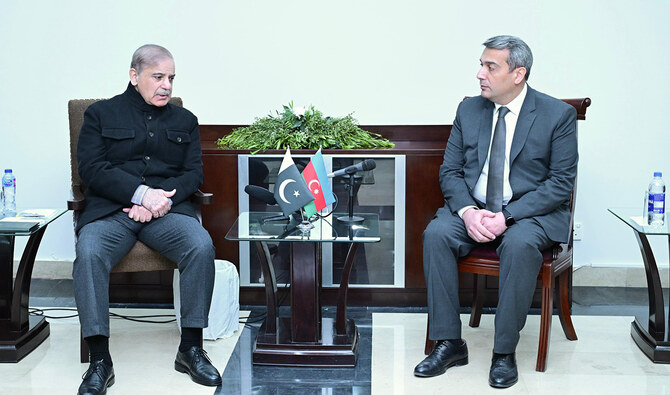ISLAMABAD: Pakistani finance authorities on Saturday rejected reports that the International Monetary Fund (IMF) had raised concerns over the government’s possible use of bailout funds for “political purpose” in the South Asian country, which awaits a crucial $1.1 billion tranche from the global lender amid an economic crisis.
A $7 billion IMF bailout program Pakistan had signed back in 2019 is facing delay since November last year. Despite implementing tough conditions, the fund and authorities have failed to come up with the completion of 9th review of the program that would lead to disbursement of $1.1 billion from fund and unleash financing from other donors.
The South Asian country has been facing an economic meltdown for months now, with its foreign exchange reserves depleting fast, local currency weakening against the dollar and inflation hovering at historic highs.
Some media outlets recently reported Pakistan had been facing a delay in the completion of the 9th review as the IMF wanted assurance from the finance authorities that the funds would not be utilized for political purposes.
“It is clarified that this news is false and unfounded as the IMF has never raised any such concern with the government nor any funds can be utilized for any purpose without the approval of parliament through the budget,” the Finance Division said in a statement.
Amid the delay in the IMF program, Pakistan’s forex reserves have depleted to less than a month’s cover of imports after the program was hit by snags over fiscal policy adjustments.
IMF officials earlier this year also visited Islamabad for talks for the revival of the program, the resumption of which is critical for Pakistan to avoid a default on international financial obligations.
As part of the IMF terms, South Asian took tough measures that included reversal of subsidies in the power, export and agriculture sectors, increase in energy prices, and a permanent power surcharge among others.
The steps included an increase in the key policy rate to an all-time high of 21 percent, a market-based currency exchange rate, arranging for external financing, and raising more than Rs170 billion ($613 million) by imposing new taxes.
Once revived, the IMF program will disburse another tranche of more than $1.1 billion to Pakistan before it concludes in June.

















